Do You Really Need a Crossover? 7 Things to Consider Before Buying a CUV

As evidenced by recent consumer trends and sales figures, the crossover is all the rage.
Though the concept of a crossover is not a new one, these machines have been honed and evolved over recent years to become even better at combining key attributes of a car and a utility vehicle to give shoppers more of what they want: space, safety, flexibility, and driving confidence.
If you’re thinking of upgrading from a car to a crossover, you’re neither alone nor short on options. The crossover segment is one of the market’s most heavily populated and the explosion in demand is being met with ever-expanding selection.
Still, maybe you’re wondering if you really “need” a crossover. This question has no solid answer that applies in each and every situation, though it’s one worth considering after answering a few questions and considering a few points.
Below, we’ll weigh the pros and cons of crossovers and try to help figure out if you really need one or if another type of vehicle might be a smarter choice.
Fuel and Maintenance Costs
Depending on the crossover you’re considering (and the car you’ll trade in for it) your operating costs may increase—sometimes considerably. A crossover is typically bigger, heavier, and less aerodynamic than a sedan. This means you’ll get more space and flexibility, though you’ll likely be paying for that at the pumps.
ALSO SEE: CVT Transmission Pros and Cons
Also, many crossovers are bought for their availability with all-wheel drive (AWD), which can marginally reduce fuel economy and drive up maintenance costs in the long term. In most cases, an AWD-equipped crossover needs little additional servicing, but regular inspections, fluid changes and other maintenance to this vital driveline component may drive costs higher over the life of the vehicle.
Other Costs
Other costs may increase as well. If you’re coming into a new or newer crossover from an older compact or family sedan, remember that items like up-sized 19 or 20-inch (or larger) wheels come wrapped in bigger, pricier tires. Pricier-to-repair LED or xenon lighting provisions are also common in this segment—and while they look great and typically perform just as well, high-end lighting elements can take a serious dent out of your wallet if and when they burn out and need replacing.
Need Extra Space?
Trusty old sedan feeling a little cramped on family trips these days? Consider adding a cargo carrier. Many are available for a few hundred dollars and can be mounted to a roof rack or trailer hitch, instantly making more space for gear, bags, luggage, camping supplies, and more. In most cases, the right cargo carrier can be like adding a second trunk to your car.
If you love your sedan but just wish it had a little more room for a growing family, spending a few bucks on a cargo carrier may make a lot more sense than replacing the entire vehicle. If you make a family trip just once or twice a year, it may also cost less in the long run to keep your smaller and more fuel-efficient car, and simply rent a larger vehicle for a few days a year as needed.
ALSO SEE: Top 10 Best Cargo Carriers and Roof Boxes for Your Car
Check the Towing Carefully
Do your homework on the towing. Some crossover models have lower towing capacities than many expect, and others have more. All vehicles are different, so if you’ll select a crossover for towing, be sure you fully understand the towing capacity of the model you’re considering and the weight of the trailer and whatever you need to haul. Some crossovers can tow less than some sedans, and towing capacities between crossovers of similar size and power output can vary drastically. Crossovers with a CVT should be looked at carefully before towing, as some of these have much lower towing capacity than some shoppers expect.
Crunch the numbers on your fuel usage too: if you only need to tow a trailer infrequently, it may be cheaper to keep your car and rent a truck once or twice a year—as opposed to running (and fuelling) a thirstier crossover every single time you drive it.
Do You Need AWD?
Do you need (like need, need) AWD? The answer is likely no. After all, our parents and their parents got around just fine for decades without it.
Though the marketing department at every automaker begs to differ, AWD is not typically a necessity, but rather something that’s very nice to have, especially in inclement weather. But if you’ve been comfortably driving for years without it, switching may cost you a pretty penny without a significant added benefit.
ALSO SEE: The 8 Best Winter Tires and Why You Absolutely Need Them
Also, remember that many sedans or compact car models like the Subaru Legacy, Subaru Impreza, Ford Fusion, Buick LaCrosse, Nissan Altima, Toyota Prius, new Mazda3, and others are available with AWD too.
As demand for AWD continues to grow, it’s likely that more and more AWD-equipped car options will soon hit the market. If you’re planning to buy in the next 1 to 2 years, you’ll likely have even more options than you do now.
You’ll Still Need Winter Tires
If you’ve never owned a crossover or AWD-equipped vehicle, it’s important to understand a simple concept: traction-enhancing features and systems like stability control, traction control and AWD only maximize the traction available between the tire and the surface of the road. These systems only work as well as the tires mounted, and as such, are not a replacement for winter tires. Put simply, AWD does absolutely nothing to help you stop faster, while proper winter tires do.
Running proper tires for the conditions gives all of your crossover’s safety and traction systems more grip to work with—and smart shoppers in winter climates will still need to budget for a quality set of winter tires, crossover or not.
ALSO SEE: Why You Need Winter Tires, Even If You Have All-Wheel Drive
The Right Choice: Do You Really Need a Crossover?
For some shoppers, opting for a crossover in place of a sedan or compact just plain makes sense. Are you mobility challenged, suffering from foot, knee or hip problems, or the recipient of a new knee or hip? The right crossover may make the process of getting in and out of your vehicle massively easier—as most models can be boarded and exited by simply sliding sideways onto your seat, rather than climbing up or down.
Combine the easier entry and exit with added seating flexibility and cargo space, and switching to a crossover may be your best choice. It may also be a no brainer for shoppers who recently bought a cottage or second home, or for the shopper whose reached a stage in their life where renovations or moving may necessitate owning a larger vehicle.
Check out our Buyers Guide on Crossovers

Justin Pritchard, an award-winning automotive journalist based in Sudbury, Ontario, is known for his comprehensive automotive reviews and discoveries. As a presenter, photographer, videographer, and technical writer, Justin shares his insights weekly through various Canadian television programs, print, and online publications. In 2023, Justin celebrated a significant milestone, airing the 600th episode of his TV program, AutoPilot. Currently, he contributes to autoTRADER.ca, Sharp Magazine, and MoneySense Magazine. His work as a technical writer, videographer, presenter, and producer has been recognized with numerous awards, including the 2019 AJAC Video Journalism Award and the 2018 AJAC Journalist of the Year. Justin holds a Bachelor of Commerce (Hons) from Laurentian University, which he earned in 2005. His career in automotive journalism began that same year at Auto123.com. Since then, he has written one of the largest collections of used car buyer guides on the internet. His passion for photography, nurtured from a young age, is evident in his work, capturing the scenic beauty of Northern Ontario. Living in a region with a particularly harsh winter climate has made Justin an expert on winter driving, winter tires, and extreme-weather safety. Justin’s significant achievements include: 2019 AJAC Video Journalism Award (Winner) 2019 AJAC Road Safety Journalism Award (Runner-Up) 2019 AJAC Automotive Writing (vehicle review topics) (Winner) 2019 AJAC Automotive Writing (technical topics) (Winner) 2018 AJAC Journalist of the Year You can follow Justin’s work on Instagram @mr2pritch and YouTube @JustinPritchard.
More by Justin Pritchard



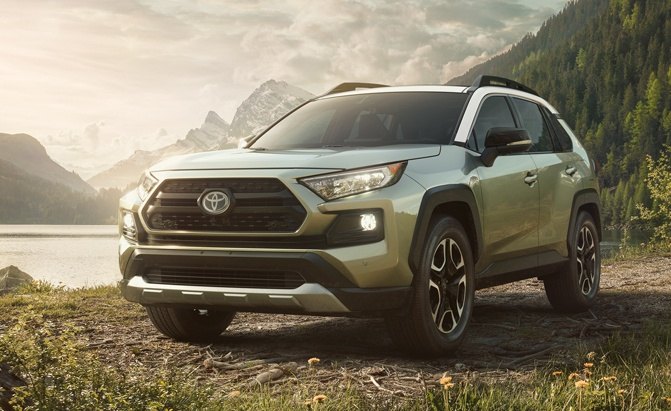


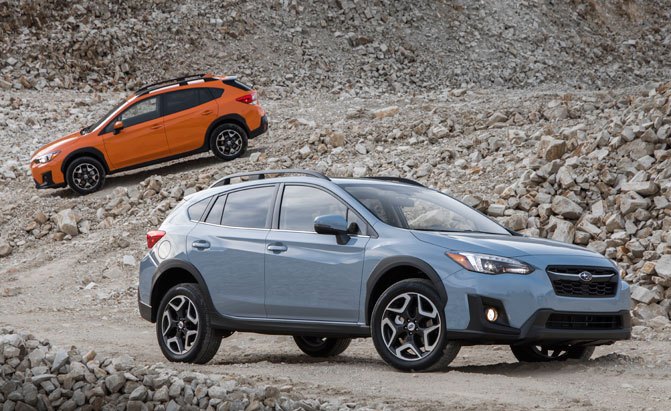












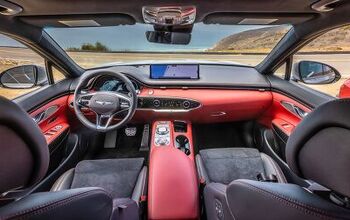

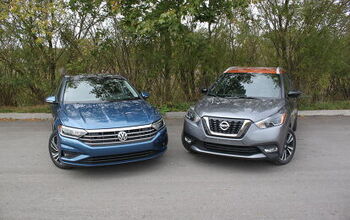

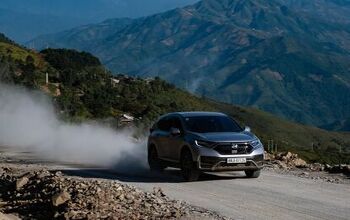
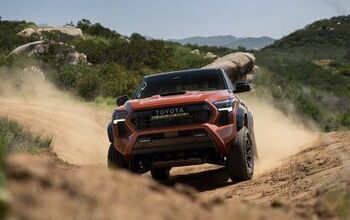
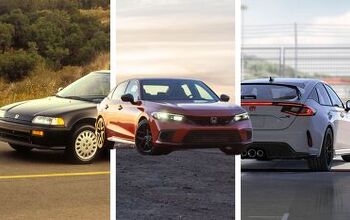
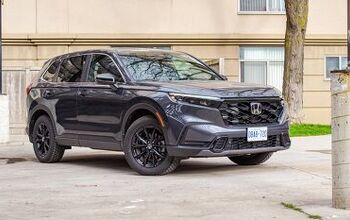
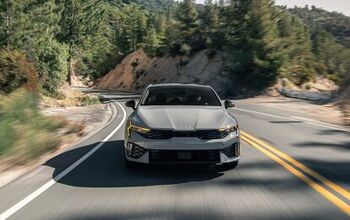

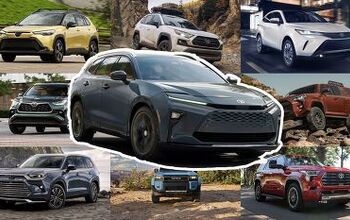
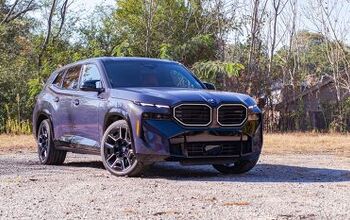

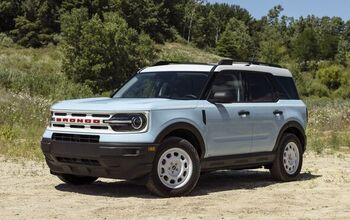
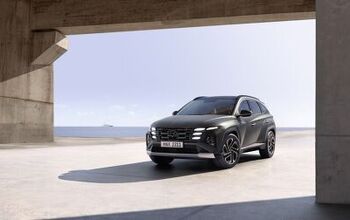
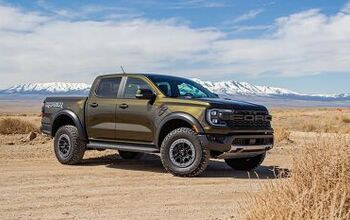
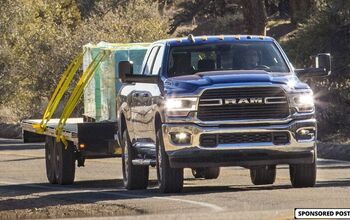
Comments
Join the conversation